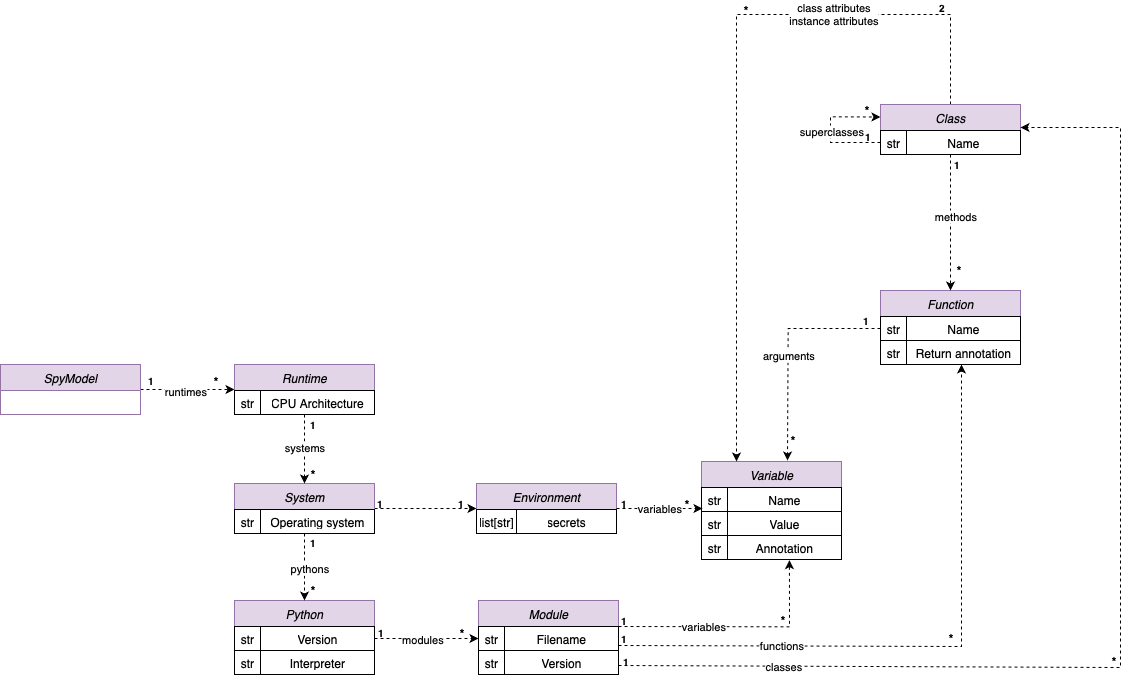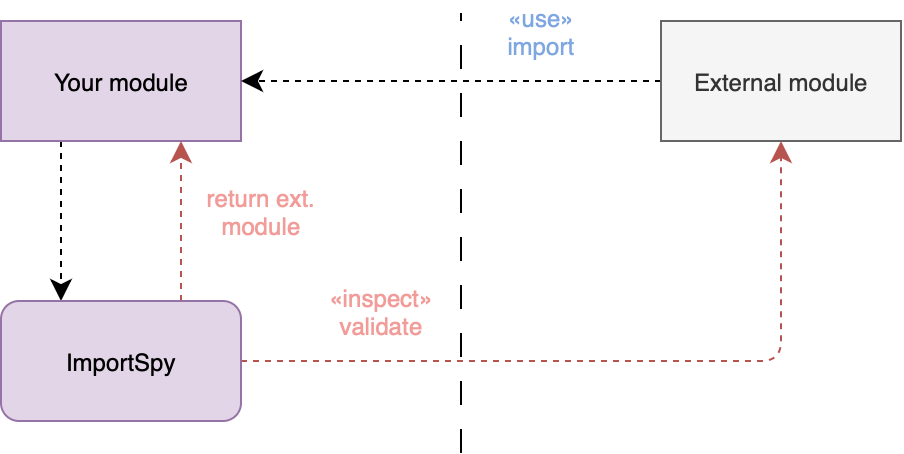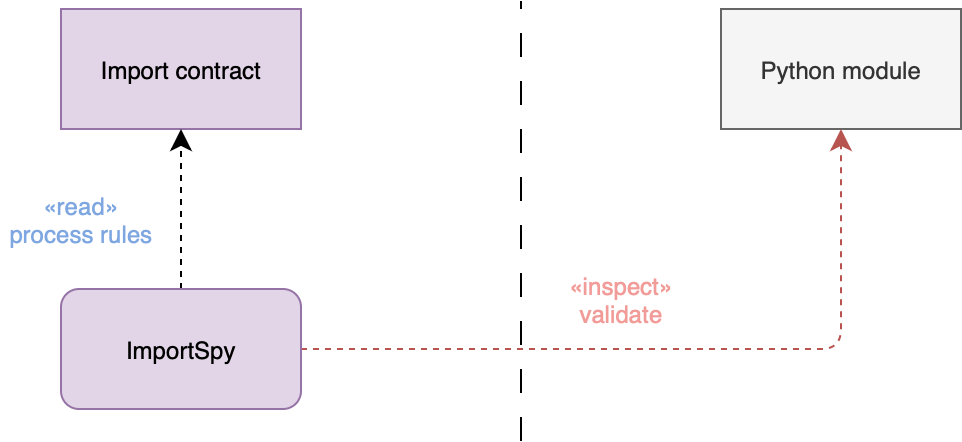Context-aware contract validation for Python imports.
Enforce runtime, environment, and code structure before execution.
ImportSpy lets your Python modules declare structured import contracts (via .yml files) to define:
- What environment they expect (OS, Python version, interpreter)
- What structure they must follow (classes, methods, variables)
- Who is allowed to import them
If the contract is not met, ImportSpy blocks the import — ensuring safe and predictable runtime behavior.
- ✅ Validate imports dynamically at runtime or via CLI
- ✅ Block incompatible usage of internal or critical modules
- ✅ Enforce module structure, arguments, annotations
- ✅ Context-aware: Python version, OS, architecture, interpreter
- ✅ Human-readable YAML contracts
- ✅ Clear, CI-friendly violation messages
pip install importspyRequires Python 3.10+
ImportSpy is powered by a layered introspection model (SpyModel), which captures:
Runtime: CPU architectureSystem: OS and environmentPython: interpreter and versionModule: classes, functions, variables, annotations
Each layer is validated against the corresponding section of your .yml contract.
filename: plugin.py
variables:
- name: mode
value: production
annotation: str
classes:
- name: Plugin
methods:
- name: run
arguments:
- name: self
- name: data
annotation: dict
return_annotation: Nonefrom importspy import Spy
caller = Spy().importspy(filepath="spymodel.yml")
caller.Plugin().run()importspy -s spymodel.yml -l DEBUG path/to/module.py- You define an import contract in
.yml - At runtime or via CLI, ImportSpy inspects:
- Who is importing the module
- What the system/environment looks like
- What the module structure provides
- If validation fails → the import is blocked
- If valid → the module runs safely
- Pydantic 2.x – schema validation
- Typer – CLI
- ruamel.yaml – YAML support
inspect+sys– runtime introspection- Poetry – dependency management
- Sphinx + ReadTheDocs – documentation
Full documentation is available at:
👉 https://atellaluca.github.io/ImportSpy/
Here are some useful entry points:
-
🧠 How ImportSpy works
A high-level overview of the validation lifecycle, contract structure, and runtime behavior. -
⚙️ SpyModel architecture
Deep dive into the declarative model that describes runtime, environment, and module contracts. -
🧪 Violation system
Learn how ImportSpy reports context-aware, structured errors on invalid imports. -
🚀 CLI usage
Run contract validation in CI/CD pipelines or pre-deploy checks with the CLI interface. -
🛠 Embedded usage
Use ImportSpy directly inside a module to protect it from being imported in unsupported contexts. -
📄 Writing import contracts
Guide to authoring.ymlcontracts: syntax, best practices, and validation patterns.
- Plugin-based frameworks (e.g., CMS, CLI, IDE)
- CI/CD pipelines with strict integration
- Security-regulated environments (IoT, medical, fintech)
- Package maintainers enforcing internal boundaries
Python’s flexibility comes at a cost:
- Silent runtime mismatches
- Missing methods or classes
- Platform-dependent failures
- No enforcement over module consumers
ImportSpy brings governance
to how, when, and where modules are imported.









